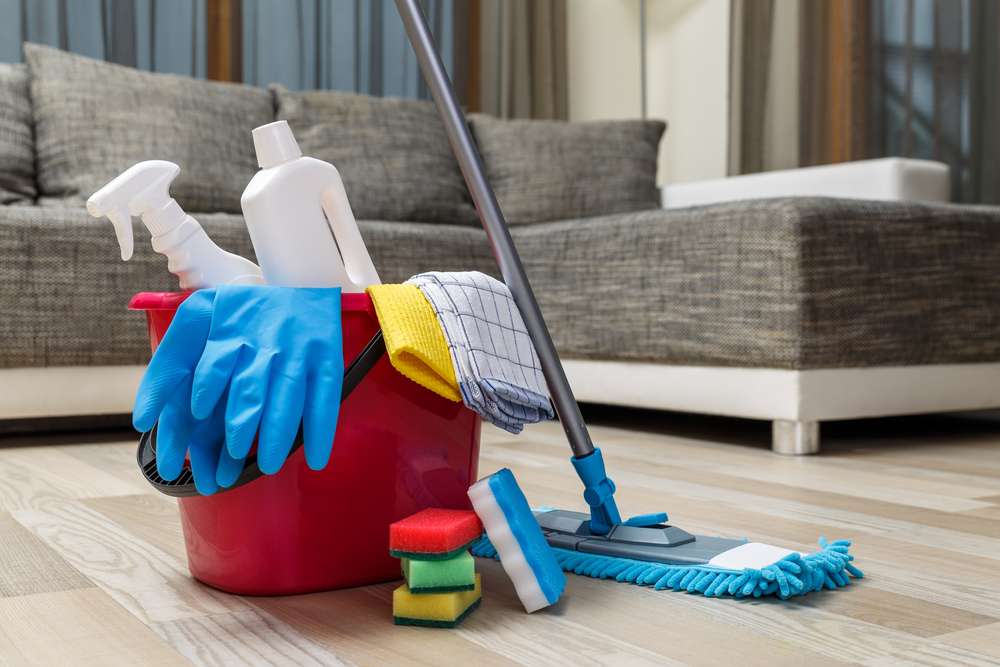The Vital Role of Cleaning Professionals in Modern Society
Explore the multifaceted world of cleaning professionals and their indispensable contribution to public health, safety, and environmental hygiene. From residential spaces to commercial complexes, these unsung heroes ensure our surroundings remain sanitary and safe. Discover the evolving landscape of cleaning careers, essential skills, technological advancements, and the growing importance of these services in our health-conscious era.

The cleaning industry encompasses a wide array of professionals who play a crucial role in maintaining hygiene and safety across various environments. Let’s delve into the different types of cleaning professionals and their unique responsibilities:
-
Residential cleaners: These specialists focus on maintaining cleanliness in private homes. Their duties often include dusting, vacuuming, mopping floors, and ensuring bathrooms and kitchens are spotless.
-
Commercial cleaning experts: These professionals are responsible for the upkeep of office buildings, retail spaces, and other business environments. Their tasks typically involve sanitizing surfaces, maintaining common areas, and ensuring a presentable workspace for employees and clients alike.
-
Institutional maintenance staff: Often referred to as janitors, these individuals work in schools, healthcare facilities, and large office complexes. Their diverse responsibilities include floor care, window cleaning, restroom sanitation, and general upkeep of the premises.
-
Niche cleaning specialists: This category encompasses professionals who focus on specific areas such as carpet restoration, high-rise window cleaning, or industrial machinery sanitation. These roles often require specialized training and equipment.
-
Hospitality housekeepers: Found primarily in hotels and resorts, these essential workers ensure guest accommodations and public areas meet the highest standards of cleanliness and comfort.
Key Competencies for Cleaning Professionals
While formal education may not be a prerequisite for many cleaning positions, certain skills and attributes are crucial for success in this field:
-
Meticulous attention to detail: The ability to identify and address areas requiring cleaning is paramount.
-
Physical endurance: Many cleaning tasks involve prolonged periods of standing, bending, and lifting, necessitating good physical condition.
-
Efficient time management: Successful cleaners must prioritize tasks effectively and complete them within designated timeframes.
-
Proficiency with cleaning agents and equipment: A thorough understanding of various cleaning products and tools, including their safe and effective use, is essential.
-
Interpersonal skills: For roles involving client interaction, strong communication abilities and a professional demeanor are vital.
-
Integrity and dependability: Given the often private nature of cleaning work, trustworthiness is a non-negotiable quality.
Certain specialized cleaning roles may require additional certifications or training, such as handling hazardous materials or employing specific cleaning methodologies.
Technological Advancements in the Cleaning Sector
Recent years have seen significant technological developments transforming the cleaning industry:
-
Cutting-edge equipment: The introduction of high-performance vacuum cleaners, steam-based cleaning systems, and autonomous floor scrubbers has dramatically improved efficiency and effectiveness.
-
Sustainable cleaning solutions: The development of eco-conscious cleaning products has reduced the environmental footprint of cleaning operations.
-
Digital management tools: Innovative software solutions now facilitate staff scheduling, inventory tracking, and client communication for cleaning companies.
-
Enhanced sanitization techniques: Technologies such as UV-C light disinfection and electrostatic spraying have revolutionized germ control, particularly in high-risk environments.
-
Immersive training methods: Virtual and augmented reality technologies are being employed to train cleaning staff and maintain consistent quality standards across operations.
Career Trajectory in the Cleaning Industry
The cleaning sector offers diverse opportunities for professional growth and advancement:
-
Entry-level positions: Many professionals begin their careers as general cleaners or housekeepers, acquiring valuable experience and skills.
-
Specialization opportunities: Workers can choose to focus on niche areas like carpet restoration, high-rise window cleaning, or biohazard remediation, often commanding premium rates.
-
Leadership roles: Experienced cleaners can progress to supervisory positions, overseeing teams and operations.
-
Executive opportunities: With additional education or extensive experience, individuals can transition into management roles within cleaning organizations.
-
Entrepreneurial ventures: Some professionals opt to establish their own cleaning businesses, offering specialized services or catering to specific market segments.
-
Facilities management: Expertise in cleaning can pave the way for broader roles in facilities management, overseeing multiple aspects of building maintenance and operations.
The Public Health Impact of Cleaning Professionals
Cleaning experts play a vital role in safeguarding public health and safety:
-
Disease prevention: Regular sanitization and disinfection help curb the spread of infectious diseases in public spaces.
-
Improved air quality: Thorough cleaning eliminates allergens such as dust, pollen, and pet dander, benefiting allergy sufferers and improving overall air quality.
-
Accident prevention: Maintaining clean, dry surfaces significantly reduces the risk of slip-and-fall incidents in public areas.
-
Food safety: Cleaning staff in food service and processing facilities play a crucial role in preventing foodborne illnesses.
-
Healthcare environment integrity: In medical settings, specialized cleaning protocols are essential for infection control and patient safety.
-
Workplace efficiency: Clean, organized work environments contribute significantly to employee well-being and productivity.
As the cleaning industry continues to evolve, adapting to new challenges and embracing technological innovations, the demand for skilled cleaning professionals remains robust. The growing awareness of hygiene’s importance, particularly in light of global health concerns, underscores the critical role of the cleaning sector. Whether pursuing entry-level positions or aiming for specialized roles, individuals entering the cleaning field can find fulfilling opportunities to contribute to public health and safety while building a stable and rewarding career.






